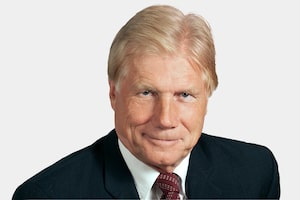Last week's issuance of the Harper government's new citizenship guide came as a fitting capper to the first decade of the new century. With its emphasis on the military, law and order, the monarchy, with expressed limits on cultural tolerance, this was a document that affirmed Canada's new conservative way.
Rarely, if ever, have the Tories had it so good. For the Liberals, the past decade has been the lost decade. For the Conservatives, it's been gold. Trends of all sorts are working for them - political, demographic, media, geographic.
Canada has had an image as a liberal Eden since Thomas Edison did his light-bulb thing. The image is not yet undone. One need only look at the big-spending, deficit-building spree of today's government. But the old conception of Canada is at risk, threatened by an emerging conservative consensus that no one 10 years ago could have foreseen.
Under Jean Chrétien, the Liberal fortress looked impregnable. But starting off the new millennium came the trauma of 9/11. It shifted the political spectrum rightward. It led to the war in Afghanistan, to a redefinition of Canada's military role, to a glorification of the armed services and men such as Rick Hillier whose agenda was to get out there and kill, as the general put it, all those "scumbags."
The backdrop eased the way for Stephen Harper's government to reshape Canadian foreign policy away from the soft-power Liberal inclinations of the previous half-century. Our old voice of moderation - on the Suez crisis, on Vietnam, the arms race, the Cold War, on peacekeeping - is no longer much in evidence. And Canadians don't seem to mind.
Abroad, it was war, while, at home, the heightened security climate played to the Conservatives' law and order agenda. Civil liberties seemed to take a back seat - Canadians, for instance, showed a willingness to forgo principled judicial norms and let one of their citizens rot in Guantanamo. Last week, they applauded a Conservative initiative to dismantle the gun registry.
The decade's critical development for conservatives was the unification of parties on the right that made electoral victory possible. Meantime, the left, with the onset of the Greens, fractionalized further. The Liberals made it hard on their own brand and easy for the Tories by falling into scandal and picking wobbly leaders.
The decade saw the right gain a stronger foothold in the media with the advent of a flagship conservative paper, the National Post. Maclean's magazine turned right. The CBC continued to struggle.
Another significant boost for conservative interests was the continued decline in influence of statist, left-leaning Quebec. Much to the chagrin of westerners, this province had set, with one Quebec prime minister after another, the Ottawa agenda going all the way back to the 1960s. But, in this decade, the focus went west, where the resource riches lay and where the population was moving. For the first time, Canadians elected what could truly be considered a western-rooted government, one highly attuned to the free-market spirit of Alberta.
Demographics worked in the Tory favour. Older voters tend to vote Conservative, and the population was aging. The youth cohort, where green and left-wing urges reside, stayed turned off and tuned out.
Free-market tendencies were upholstered by the undermining of the tax base with reductions in the GST and corporate taxes. Old-style nationalism took a further hit as the continuing hollowing-out trend bled the country of big-name national champions.
Not everything had a conservative lean. The Harper government's minority stature forced it into moderate territory on many an issue. At the provincial level, the Conservatives didn't make great strides. And as for Canadians themselves, the jury was still out on whether they were really moving to the starboard side. They loathed George W. Bush. They loved Barack Obama.
The celebrated advent of Mr. Obama made the trend line in Canada look all the more remarkable. We had customarily tacked left of America. Now that dichotomy was seemingly disappearing. The liberal rise in the United States had little or no reverberation north of the border, where the Harper Conservatives appeared to becoming more entrenched.
It was another indication of how Canada was being redefined, of what a decade could do to an identity, of how the old Canadian consensus had become imperilled.
 Lawrence Martin
Lawrence Martin